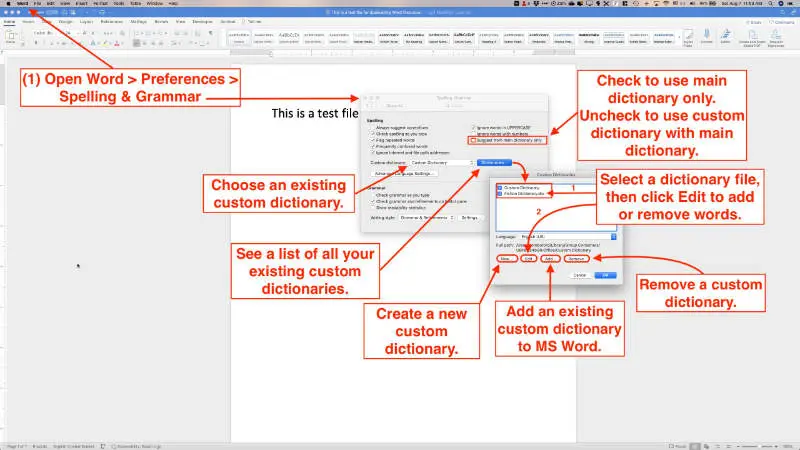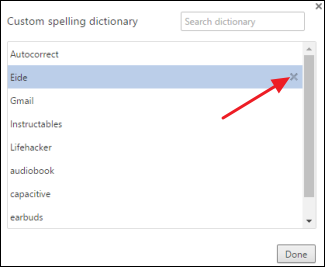
Delete any wrong version, (acs, ACS, or the like) and add the correct version (AcS). Open CUSTOM.DIC in a text editor (such as Notepad) to see if it contains your AcS entry. Debbie, I suggest that you examine the actual dictionary file. It SHOULD respect any entry with simple (non-accented, non-Unicode) characters. All this has nothing to do with how Word respects the entry. But if you place entries manually within a dictionary file, Word will not change the order. Word would store an entry of AcS before abb because 65 (code for A) comes before 97 (code for a). My earlier comment about "leading capitals not withstanding" refers to the alphabetization in dictionary (dic) files based on ASCII code, in which upper case letters come before lower case. You can find more information about this problem in this Knowledge Base article: The problem only seems to occur if you specify a non-standard location for the dictionary in the Tools setting of the File Locations dialog box. This can lead to potential problems, particularly when it comes to sharing the dictionary with other Office applications. Under certain circumstances, Word could create the custom dictionary in the wrong folder of your system.

The third potential cause is related to where Word stores its custom dictionary. Unfortunately, there is no way around this problem in Word. When you later enter the same foreign word, it is marked as incorrect since that exact word-with its exact character coding-cannot be found in the dictionary.

When you add them to the dictionary, Word converts them to as close of an equivalent as it can, but the words are still not the same. Some foreign words cannot be properly represented in a plain-text file, and rely instead upon Unicode characters. The custom dictionary is a plain-text file. The second potential cause is more likely, however, given the fact that you are adding foreign-language words to custom dictionary. This limitation does not apply to later versions of Word, where the file size and number of entries is essentially unlimited. If it is a size issue, your options are to either delete some words from the custom dictionary, or to start using a secondary custom dictionary file. You should check, within Windows, the size of the file. If the size goes larger than that, Word ignores anything past the 64K limit. With this older version of Word there is a limit of 5,000 words in a dictionary and a maximum file size of 64K. This is unlikely, however, unless you are using Word 97.

First, it is possible that your custom dictionary file is getting too large. There are three potential causes of this problem. Word inconsistently adds these words-including names and terms borrowed from other languages some with accents-to the dictionary. William wrote about a problem he was having adding certain words to his custom dictionary.


 0 kommentar(er)
0 kommentar(er)
